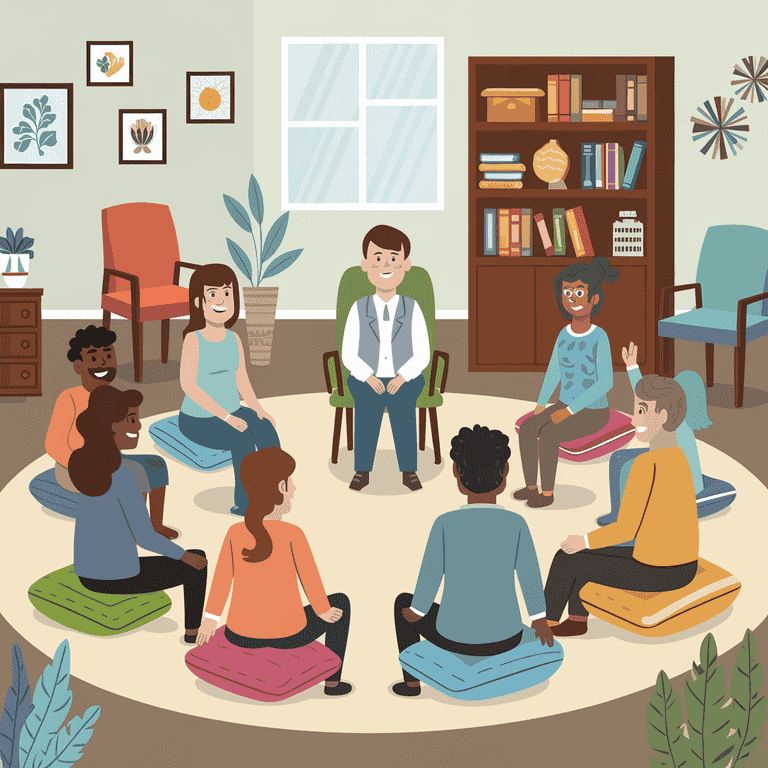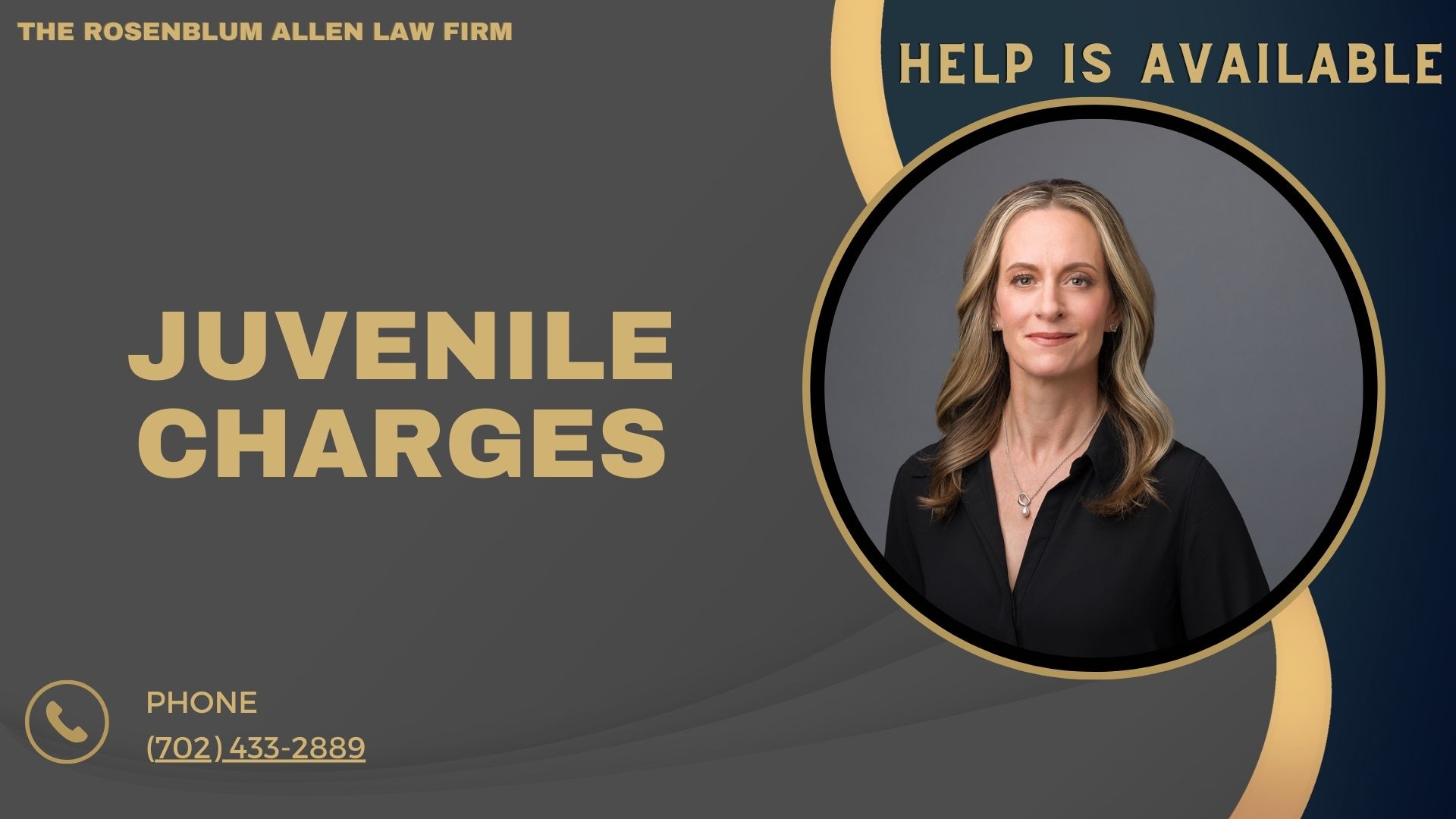Let’s face it: dealing with juvenile charges can be overwhelming. Whether you’re a concerned parent or a young person in trouble, understanding the ins and outs of the juvenile justice system is crucial. This guide will walk you through everything you need to know about juvenile charges, from what they are to how they’re handled.
 What Are Juvenile Charges?
What Are Juvenile Charges?
Juvenile charges are like adult criminal charges but with training wheels. They’re designed to address offenses young people commit, focusing on rehabilitation rather than punishment. Let’s break it down further.
Definition of Juvenile Charges
Juvenile charges are legal accusations against minors who have allegedly broken the law. They are handled in the juvenile justice system, which is separate from the adult criminal justice system.
Think of it as a special court just for kids and teens. The goal? To help young offenders get back on track, not to throw the book at them.
Age Range for Juvenile Offenders
Now, you might be wondering: who exactly counts as a juvenile? Well, it’s not a one-size-fits-all answer.
In most states, juvenile charges apply to individuals under 18 years old. However, some states set the upper limit at 16 or 17. And in rare cases, even younger children can face charges.
Here’s a quick breakdown:
- Most common age range: 10-17 years old
- Some states: 7-16 years old
- Rare cases: Children as young as 6 (but this is highly uncommon)
Remember, these age ranges can vary depending on the severity of the offense and local laws.
Differences Between Juvenile and Adult Charges
Juvenile charges are like the little sibling of adult charges. They share some similarities, but there are key differences:
- Focus on rehabilitation: The juvenile system aims to help young offenders, not just punish them.
- Confidentiality: Juvenile records are often sealed or expunged to protect the minor’s future.
- Parental involvement: Parents or guardians are typically more involved in juvenile cases.
- Terminology: Instead of “guilty” or “not guilty,” juvenile courts use terms like “delinquent” or “not delinquent.”
- Sentencing: Juveniles often receive more lenient sentences, focusing on education and counseling.
Common Types of Juvenile Charges
Like adults, kids and teens can get into all sorts of trouble. However, some offenses are more common than others in the juvenile justice system. Let’s take a look at the usual suspects.
Status Offenses
Status offenses are like the “kids only” section of juvenile charges. These are actions that are only illegal because of the offender’s age. If an adult did them, no one would bat an eye.
Truancy
Ah, the classic “skipping school” offense. Truancy is when a student regularly misses school without a valid excuse. It’s like playing hooky but with legal consequences.
Why it matters:
- Education is crucial for a child’s development
- Chronic absenteeism can lead to poor academic performance
- It’s often a sign of underlying issues at home or school

Curfew Violations
Remember when your parents said, “Be home by 10 PM!”? In some places, that’s not just a house rule—it’s the law.
Curfew violations occur when minors are out in public during restricted hours, usually late at night or early morning.
Common curfew times:
- Weeknights: 10 PM – 6 AM
- Weekends: 11 PM – 6 AM (maybe later in some areas)
Underage Drinking
We’ve all heard the saying, “You must be 21 to drink.” When minors decide to test that rule, they can face underage drinking charges.
This offense includes:
- Consuming alcohol
- Possessing alcohol
- Attempting to purchase alcohol
Fun fact: In some states, even being in the presence of alcohol can get a minor in trouble!
Misdemeanors
Misdemeanors are like the middle child of criminal offenses—more serious than status offenses but not as severe as felonies. For juveniles, these charges can still have significant consequences.
Shoplifting
Also known as “petty theft,” shoplifting is when someone takes merchandise from a store without paying. It’s one of the most common juvenile offenses.
Why kids shoplift:
- Peer pressure
- Thrill-seeking
- Inability to afford desired items
- Underlying emotional issues
Remember, even if it seems like “no big deal,” shoplifting can have serious legal and personal consequences.
Vandalism
Graffiti, broken windows, keyed cars—these all fall under vandalism. It’s the intentional destruction or defacement of someone else’s property.
Typical forms of juvenile vandalism:
- Spray-painting buildings or signs
- Breaking windows or lights
- Egging houses or cars
- Damaging school property
While it might seem harmless fun, vandalism can lead to hefty fines and even more severe charges.
Simple Assault
Don’t let the word “simple” fool you—this charge is anything but. Simple assault involves intentionally causing or attempting to cause bodily injury to another person.
Examples of simple assault:
- Punching someone during an argument
- Threatening to hurt someone while holding a weapon
- Aggressively shoving or pushing another person
It’s important to note that in many jurisdictions, no actual physical contact is necessary for a simple assault charge. The threat of violence can be enough.

The Juvenile Justice System
Imagine a legal system designed specifically for young people. The juvenile justice system is precisely that. It’s like a parallel universe to the adult criminal justice system but has unique rules and processes.
Arrest and Detention Process
Things can move pretty quickly when a minor gets in trouble with the law. Here’s what typically happens:
- The initial encounter: A police officer catches a young person in the act or responds to a call.
- Decision time: The officer decides whether to:
- Give a warning
- Take the minor home
- Issue a citation
- Make an arrest
If arrested, The minor is taken to a juvenile detention center.
- Intake screening: A probation officer evaluates the case and decides whether to:
- Release the minor to their parents
- Keep them in detention until a court hearing
Remember, the goal is always to use the least restrictive option necessary. Nobody wants to see a kid in handcuffs if it can be avoided.
Juvenile Court Proceedings
Juvenile court is like regular court’s younger sibling. It has its quirks and terminology. Let’s break it down:
- Petition filing: Instead of “charges,” the prosecutor files a “petition” alleging delinquency.
- Initial hearing: The minor (now called the “respondent”) appears before a judge to hear the allegations.
- Plea entry: The respondent admits or denies the allegations. No “guilty” or “not guilty” here!
- Adjudication hearing: This is like a trial but usually less formal and without a jury.
- Disposition hearing: If found “delinquent,” this is where the judge decides on the consequences.
Throughout this process, the focus is on rehabilitation, not punishment. It’s all about helping the young person get back on track.
Diversion Programs
Sometimes, the best way to handle juvenile offenses is to keep kids out of court. That’s where diversion programs come in. Think of them as a “time out” with a purpose.
Common types of diversion programs:
- Community service
- Counseling or therapy
- Drug education classes
- Victim-offender mediation
- Mentoring programs
These programs aim to address the root causes of delinquent behavior and teach valuable life skills. It’s like hitting the reset button on a young person’s life.
Consequences of Juvenile Charges
Actions have consequences, even for young people. However, in the juvenile system, these consequences are designed to teach and rehabilitate, not just punish.
Short-Term Consequences
These are the immediate effects a young person might face after being found delinquent.
Detention
Detention is like a time-out but more serious. It involves holding a minor in a secure facility, either short-term (pre-trial) or as part of their disposition.
Key points about juvenile detention:
- Usually reserved for more serious offenses
- It can last from a few days to several months
- Facilities often provide education and counseling services
Probation
Probation is the juvenile justice system’s saying, “We’re watching you.” It allows the minor to stay in the community under supervision.
Typical probation conditions:
- Regular check-ins with a probation officer
- Curfews
- School attendance requirements
- Drug testing
- Restrictions on who they can associate with

Community Service
Nothing teaches responsibility quite like giving back to the community. Community service is a common consequence for juvenile offenders.
Examples of community service:
- Cleaning up parks or beaches
- Assisting at animal shelters
- Helping at food banks
- Painting over graffiti
It’s a win-win: the community benefits and the young person learns valuable lessons.
Long-Term Consequences
While the juvenile system aims to give kids a fresh start, some consequences can linger.
Criminal Record
Even though juvenile records are often sealed, they can still have an impact.
Potential long-term effects:
- Difficulty getting into college
- Challenges finding employment
- Issues with joining the military
- Problems obtaining professional licenses
The good news is that many states allow juvenile records to be expunged or sealed, giving young offenders a true second chance.
Impact on Education
Juvenile charges can throw a wrench in a young person’s educational journey.
Possible educational consequences:
- Suspension or expulsion from school
- Difficulty transferring to a new school
- Loss of scholarships or financial aid
- Ineligibility for specific academic programs
Young offenders must stay focused on their education, as it’s often the key to a brighter future.
Effect on Future Employment
A juvenile record can cast a long shadow over future job prospects.
Potential employment challenges:
- Background checks revealing juvenile offenses
- Difficulty obtaining security clearances
- Ineligibility for certain licensed professions
- Hesitancy from employers to hire someone with a record
Honesty is usually the best policy when discussing past offenses with potential employers.

Rights of Juveniles
Just because they’re young doesn’t mean they don’t have rights. Juveniles have some pretty essential protections under the law. Let’s dive into what those rights look like.
Miranda Rights for Minors
You’ve probably heard of Miranda rights from TV shows: “You have the right to remain silent.” But did you know these rights apply to minors, too?
Key points about Miranda rights for juveniles:
- Must be given in age-appropriate language
- Parents or guardians should be present during questioning
- Minors can waive their rights, but courts scrutinize these waivers carefully
Remember, staying silent isn’t just for the movies. It’s a fundamental right that can protect young people from self-incrimination.
Right to Legal Representation
Every kid deserves a fair shake in court. That’s why juveniles have the right to an attorney, just like adults do.
Essential facts about juvenile legal representation:
- If the family can’t afford a lawyer, the court will appoint one
- Juveniles can have a say in whether to accept a plea deal
- Attorneys can help negotiate alternatives to formal court proceedings
Having a lawyer isn’t about getting off the hook. It’s about ensuring the process is fair and protecting the young person’s rights.
Confidentiality of Juvenile Records
What happens in juvenile court stays in juvenile court… mostly. Confidentiality is a big deal in the juvenile justice system.
Why juvenile records are kept confidential:
- To protect the minor’s future opportunities
- To encourage rehabilitation without the stigma of a public record
- To recognize that young people can learn from their mistakes
But here’s the catch: confidentiality isn’t absolute. In some cases, juvenile records can be accessed by:
- Schools
- Potential employers (for specific jobs)
- Law enforcement agencies
The good news? Many states allow juvenile records to be sealed or expunged once the person reaches adulthood.
Prevention and Intervention
The best way to deal with juvenile charges is to prevent them from happening. Let’s look at some strategies for keeping kids on the right track.
Early Intervention Programs
Catching potential issues early can make all the difference. Early intervention programs aim to nip problems in the bud.
Examples of early intervention programs:
- After-school activities to keep kids engaged
- Tutoring and academic support
- Conflict resolution training
- Substance abuse education
These programs are like a vaccine against future trouble. They give kids the tools they need to make good choices.

Family Support Services
Sometimes, the whole family needs a little help. Family support services recognize that a child’s behavior doesn’t happen in a vacuum.
Types of family support services:
- Family Counseling
- Parenting classes
- In-home support workers
- Respite care for overwhelmed parents
By strengthening the family unit, these services help create a more stable environment for young people.
Mentoring Programs
Having a positive role model can change a young person’s life, which is why mentoring programs exist.
Benefits of mentoring programs:
- Provide guidance and support
- Offer a positive adult influence
- Help develop life skills
- Boost self-esteem and confidence
Mentors can be like a compass, helping guide young people toward a brighter future.
Seeking Legal Help
When a young person is facing charges, getting the right legal help is crucial. It’s not just about avoiding consequences; it’s about ensuring fair treatment and the best possible outcome.
Importance of Specialized Juvenile Attorneys
Juvenile law is a whole different ballgame. That’s why it’s essential to find an attorney specializing in this area.
Why choose a juvenile law specialist:
- They understand the unique aspects of juvenile court
- They’re familiar with local diversion programs and alternatives to prosecution
- They know how to communicate effectively with young clients
- They can navigate the balance between legal defense and the child’s best interests
An excellent juvenile attorney is part legal professional, child advocate, and life coach.
How to Choose a Juvenile Defense Lawyer
Picking the right lawyer can feel overwhelming. Here are some tips to make the process easier:
- Look for experience: Choose an attorney with a track record in juvenile cases.
- Check their reputation: Read reviews or ask for references from past clients.
- Assess their communication style: The lawyer should be able to explain things clearly to both you and your child.
- Consider their approach: Do they focus on rehabilitation and diversion programs, or are they more trial-oriented?
- Evaluate their availability: Will they be accessible when you need them?
Remember, the right attorney can make a difference in a juvenile case. Don’t be afraid to ask questions and shop around until you find the best fit.

Conclusion
Navigating the world of juvenile charges can feel like walking through a legal maze. But remember, you’re not alone in this journey.
Let’s recap the key points:
- Juvenile charges differ from adult charges, focusing on rehabilitation rather than punishment.
- The juvenile justice system has its unique processes and terminology.
- Young offenders have rights, including the right to remain silent and legal representation.
- Early intervention and prevention programs can be crucial in keeping kids out of trouble.
- Choosing the right legal help is essential for the best possible outcome.
Here’s the bottom line: a juvenile charge doesn’t have to define a young person’s future. The proper support, understanding, and guidance can be a turning point towards a more positive path.
Remember, everyone makes mistakes, especially when we’re young. The key is learning from those mistakes and using them as stepping stones to a brighter future. If you or a young person you know is facing juvenile charges, don’t panic. Take a deep breath, seek reliable information and support, and remember this is just one chapter in a much longer story.
The road ahead might seem harsh, but with the right approach, it’s an opportunity for growth, learning, and positive change. After all, isn’t that what growing up is all about?

Frequently Asked Questions
Can a juvenile be tried as an adult?
In certain serious cases, yes. This process is called “waiver” or “transfer” to adult court. It typically happens for severe offenses like murder or when the juvenile has an extensive criminal history.
What’s the difference between a status offense and a delinquent act?
Status offenses are behaviors that are only illegal for minors, like truancy or curfew violations. Delinquent acts are behaviors that would be criminal if committed by an adult, such as theft or assault.
Can parents be held legally responsible for their child’s actions?
In some cases, yes. Many states have “parental responsibility laws” that can hold parents civilly or criminally liable for certain actions of their minor children.
Are juvenile court proceedings open to the public?
Generally, no. Juvenile court proceedings are typically closed to protect the privacy of the minor. However, some states allow limited public access in certain cases.
How long does a juvenile record last?
It varies by state. In many cases, juvenile records can be sealed or expunged when the person reaches adulthood, but this isn’t automatic and may require a petition to the court.
Can a juvenile be sentenced to life in prison?
Following recent Supreme Court decisions, juveniles cannot be sentenced to life without parole for non-homicide offenses. Life sentences for homicide are still possible but are subject to strict constitutional limits.
What’s the difference between juvenile detention and adult jail?
Juvenile detention facilities are designed to be more rehabilitative, often offering education and counseling services. They’re also typically smaller and separate juveniles from adult offenders.
Can a juvenile get bail?
The concept of bail doesn’t usually apply in juvenile cases. Instead, the court decides whether to detain the juvenile or release them to their parents or guardians based on factors like public safety and flight risk.
What happens if a juvenile violates probation?
Consequences can vary but may include more restrictive probation terms, placement in a residential facility, or even commitment to a juvenile correctional facility.
Are there alternatives to formal juvenile court proceedings?
Yes, many jurisdictions offer alternatives like teen courts, restorative justice programs, or informal probation for less serious offenses.
Can a juvenile’s DNA be collected and stored in a database?
Laws vary by state, but many allow DNA collection from juveniles convicted of certain offenses, particularly felonies.
What rights do parents have in juvenile court proceedings?
Parents generally have the right to be notified of proceedings, to be present in court, and to participate in developing treatment plans. However, the juvenile retains the right to an attorney and to confidential communication with that attorney.

Glossary
Adjudication: The court process where a judge determines whether a juvenile committed the alleged offense.
Delinquent Act: An action committed by a juvenile that would be considered a crime if committed by an adult.
Disposition: The juvenile court equivalent of sentencing in adult criminal court.
Diversion Program: An alternative to formal court processing that aims to redirect youth from the juvenile justice system.
Expungement: The process of sealing or destroying juvenile court records.
Intake: The initial process of determining how a juvenile case should be handled after an arrest.
Juvenile: A person who has not yet reached the age of adulthood as defined by state law.
Juvenile Court: A special court that handles cases involving minors accused of crimes or status offenses.
Miranda Rights: The constitutional rights that must be read to a person upon arrest, including the right to remain silent and the right to an attorney.
Petition: A formal document filed in juvenile court alleging that a juvenile is delinquent, in need of supervision, or dependent.
Probation: A period of supervision in the community as an alternative to detention.
Respondent: The term used for a juvenile who is the subject of a petition in juvenile court.
Sealed Records: Juvenile records that are closed to the public and can only be accessed by court order.
Status Offense: An action that is only considered an offense when committed by a minor, such as truancy or curfew violations.
Transfer: The process of moving a juvenile case to adult criminal court, also known as “waiver.”
Truancy: Unexcused absence from school.
Waiver: The process by which a juvenile court judge transfers a case to adult criminal court.
Youth Court: Also known as teen court or peer court, a program where youth are sentenced by their peers for minor offenses.
Detention: The temporary custody of a juvenile in a secure facility before or after adjudication.
Guardian ad Litem: An adult appointed by the court to represent the best interests of a child in legal proceedings.

Further Reading
Molly Rosenblum, Esq., our lead attorney, has developed a comprehensive suite of resources to assist those facing criminal charges or legal concerns in various areas. These resources, available on the Rosenblum Law website, are designed to provide in-depth information and guidance across a wide range of criminal defense topics. Here’s a brief overview of the resources created to support you during challenging times:
Criminal Defense Attorneys: Effective legal defense strategies and insights for individuals facing criminal charges. Explore more.
Las Vegas DUI Lawyer: Specialized legal assistance for those accused of driving under the influence in Las Vegas. Learn about DUI defense.
Domestic Violence Lawyer Las Vegas: Dedicated support and defense strategies for individuals accused of domestic violence. Find help for domestic violence cases.
Drug Possession Lawyer: Legal guidance and defense for those facing drug possession charges. Get assistance with drug charges.
Sex Crimes Attorney: Effective defense for individuals accused of sex crimes, offering confidential and comprehensive legal support. Explore sex crime defense.
CPS Defense Attorney: Assistance for those involved in child abuse and neglect cases, including defense against CPS investigations. Learn about CPS defense.
Misdemeanor Lawyer: Legal advice and representation for individuals facing misdemeanor charges. Find misdemeanor legal support.
Juvenile Defense Lawyers: Specialized legal services for minors facing criminal charges, focusing on juvenile justice. Get juvenile defense help.
Las Vegas Warrant Defense Attorney: Assistance for individuals with outstanding warrants, offering strategies to resolve warrants effectively. Learn about warrant defense.
Las Vegas Probation Violation Attorney: Legal representation for those accused of violating probation terms. Understand probation violation defense.
Theft Crime Defense Lawyer: Defense strategies for individuals charged with theft, from petty theft to grand larceny. Explore theft defense options.
Kidnapping Lawyers: Legal assistance for serious charges such as kidnapping, focusing on building a strong defense. Get help with kidnapping charges.
Firearms Lawyer Las Vegas: Guidance and defense for individuals facing firearms-related charges in Las Vegas. Learn about firearms defense.
Through these resources, Molly Rosenblum, Esq., aims to provide vital support and information, helping you navigate the complexities of the legal system with confidence. We encourage you to utilize these resources to better understand your legal options and rights.

Offsite Resources You May Find Helpful
Here are five offsite resources related to juvenile charges and legal advice:
-
Juvenile Law Center: A non-profit organization that advocates for the rights and well-being of children in the juvenile justice system. They provide resources, legal advice, and advocacy for juveniles and their families.
-
National Juvenile Defender Center: Offers resources, training, and support for juvenile defenders and advocates. They provide valuable information and legal advice specific to juvenile defense cases.
-
Youth Law Center: A national organization that works to protect the rights and well-being of vulnerable youth, including those involved in the juvenile justice system. They offer legal resources and advocacy for youth facing charges.
-
Kids In Need of Defense (KIND): A non-profit organization that provides legal representation and advocacy for unaccompanied immigrant and refugee children facing deportation proceedings. They offer legal advice and resources for juveniles involved in immigration-related charges.
-
Juvenile Justice Information Exchange: An online news source and resource center focused on juvenile justice issues. They provide articles, research, and resources related to juvenile charges, legal advice, and advocacy.

What's Next?
It is crucial to seek legal advice if charged with a juvenile sex offense.
Getting convicted of a crime could have dire effects that last for a long time. It’s hard to figure out the legal system without help from a professional lawyer.
An attorney who specializes in juvenile sex offense cases can:
- evaluate the evidence,
- advise on the available defense strategies,
- and help the accused make informed decisions about how to proceed with their case.
We can also negotiate with the prosecution to try to get the charges reduced or dropped.
We can help ensure that your rights are protected throughout the legal process.
Without legal advice, the accused may not fully understand the charges against them or the potential consequences of a conviction.
We may also be unaware of their legal rights and the available defense strategies.
Seeking legal advice can provide the accused with the best chance of achieving a favorable outcome in their case.




